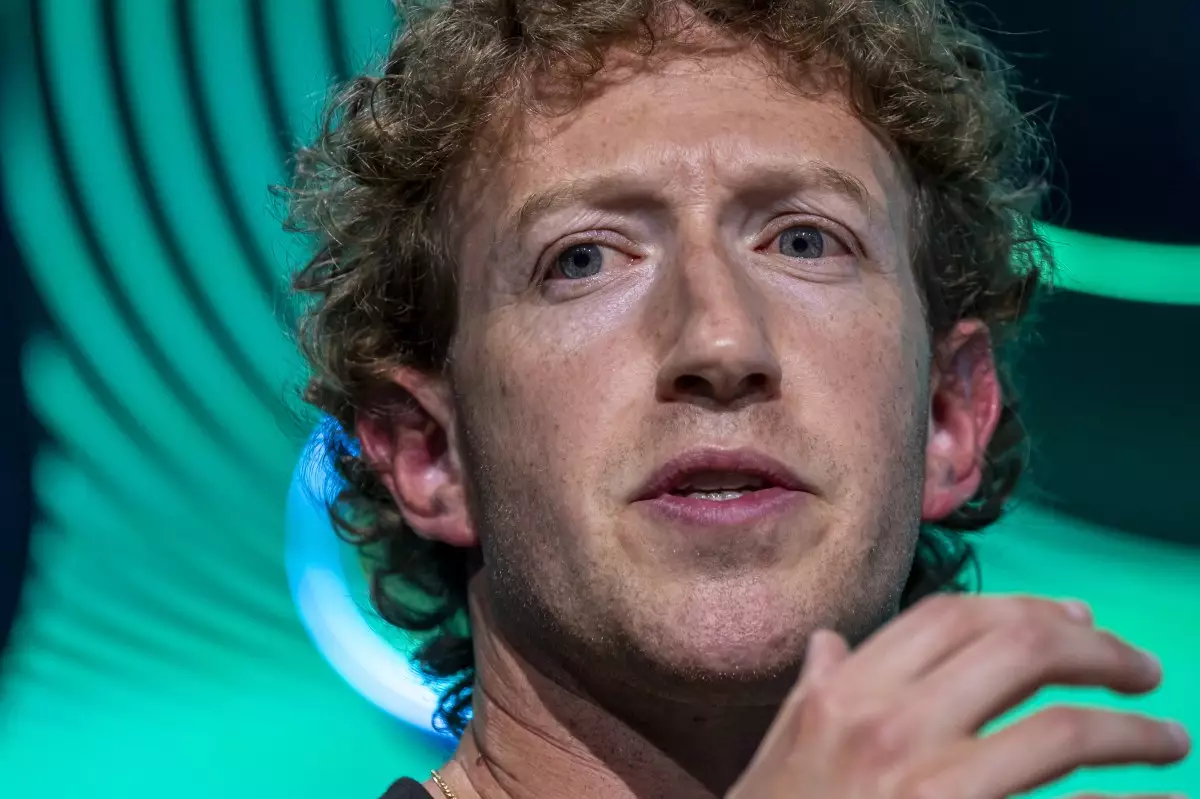In recent weeks, an unprecedented wave of discontent has surged among social media users in the United States, triggered specifically by Meta Platforms Inc.’s controversial decision to relax its content moderation policies and dismantle third-party fact-checking systems. With the looming prospect of a new political administration, the company, led by CEO Mark Zuckerberg, aims to recalibrate its approach towards political discourse. However, the consequences of such changes have sparked alarming concerns regarding rampant misinformation, hate speech, and violent content across Meta’s platforms, prompting many users to seek alternatives to Facebook, Instagram, and Threads.
Meta’s decision to roll back its restrictions designed to combat disinformation and hateful content signifies a worrying trend in the social media landscape. Experts argue that the timing of this shift cannot be overlooked; it appears to cater strategically to the anticipated political climate, particularly with the likely return of familiar political figures. This has led to a palpable unrest among users, who fear that these alterations will lead to an upsurge in harmful rhetoric and a resurgence of divisive narratives that could spill into real-world consequences.
The public’s response has been swift and revealing. Within just days of the announcements, Google recorded an explosive surge in searches related to disabling accounts on Meta’s platforms. Terms like “how to permanently delete Facebook” soared to record interest, reaching Google Trends’ maximum score of 100, indicative of a significant collective impulse among users eager to distance themselves from what they perceive as a toxic online environment.
Alarming Statistics and Search Trends
A closer examination of Google Trends indicates that not only has the desire to delete accounts skyrocketed, but related searches have also spiked dramatically. Queries such as “how to delete all photos Facebook” and “Facebook alternatives” experienced extraordinary increases, some rising over 5,000%. The sheer volume of interest highlights a growing reluctance to engage with platforms that users believe prioritize agenda-driven content over community wellbeing.
The backlash reflects a broader societal concern regarding the implications of unchecked political discourse and inflammatory content. Many users recall the grim aftermath of the January 6 Capitol insurrection, exacerbated by coordinated messages disseminated via Facebook and Instagram. Historical precedents of violence linked to misinformation on these platforms cannot be disregarded, prompting users to re-evaluate their online engagement.
In tandem with the growing discontent, alternative social media platforms such as Bluesky and Mastodon are witnessing a surge in interest. Users are exploring these decentralized networks as safer, more community-oriented alternatives to mainstream options, indicative of a broader quest for healthier online spaces. Mastodon’s CEO, Eugen Rochko, expressed concerns about Meta’s recent changes, categorizing them as alarming for anyone who values ethical content moderation. His insights provide a beacon for users who are increasingly wary of the volatile landscape created by major social media players.
Furthermore, the introduction of a community notes system, intended to replace third-party fact-checkers, has not garnered as much support as Meta might have anticipated. Critics argue that this model, similar to the one employed by X (formerly Twitter), may lead to additional challenges in curbing misinformation, as it relies heavily on user-driven moderation, which can be inconsistent and, at times, biased.
The essence of this rising discontent is the call for social media platforms to uphold ethical responsibility and prioritize user safety over political pandering. Users are increasingly aware of the potential for their online activities to have real-life ramifications, and they hold social media companies accountable for fostering a safe digital environment. As the landscape evolves, the future of platforms like Meta remains uncertain, particularly with the growing interest in alternatives that prioritize user agency, security, and clear guidelines for content moderation.
Meta’s decision to adjust its content policies has not only led to an alarming uptick in searches for account deletions but has also revitalized dialogue surrounding the need for responsible social media practices. The ensuing consequences of these changes will likely resonate within the digital community for the foreseeable future. As users exercise their agency by seeking alternatives, the message is clear: the demand for safe and ethical online spaces is stronger than ever.

